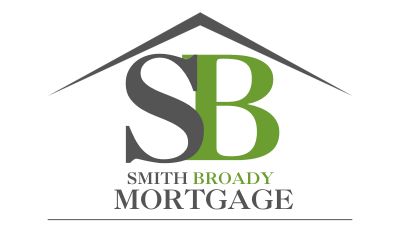Frequently Asked Mortgage & Loan Questions in Jeffersonville, IN
Indiana, Kentucky and Florida’s #1 Source For Your Mortgage Needs
Important Things To Know
Frequently Asked Questions And Answers
Since there are many different types of mortgages, including:
- Fixed-Rate
- Adjustable Rate
- Federal Housing Administration
- Veteran’s Association
This is just to name a few – it’s important to know which type of loan the lender can offer you.
Don’t be afraid to ask them to take the time to explain each one to you and the pros and cons. Make sure that the lender is recommending specific loans only after finding out about your particular needs and qualifications, and not just pushing their own agenda.
Be sure to ask why they think a specific loan would work best for you.
The interest rate is going to be based on the size of the loan and on your credit score.
Interest accrues over the life of your loan and over a 15-30 year span, can add up considerably. If the interest rate is adjustable (as in an Adjustable Rate Mortgage or ARM), ask how long the rate will remain fixed, and about the maximum annual adjustment, highest rate (cap), index and margin.
The APR includes both the interest rate and all other lender fees, divided by the loan’s term.
As you’re trying to develop a budget after your home purchase, you’re going to need to know what your monthly expenses are going to look like.
Make sure you include taxes and insurance in their calculations. Remember that your monthly payment shouldn’t be so large that you can’t also budget for unexpected expenses and a retirement fund.
Interest rates, and therefore monthly payments, vary considerably depending on the size of your down payment. This also factors into whether you’ll be required to pay mortgage insurance.
Usually, companies will waive PMI (Private Mortgage Insurance) if your down payment is 20% or more of the purchase price. Some loans, (like those offered by the VA, FHA and USDA), will allow for a down payment of zero to 3.5%, but depending on the program, they will require insurance premiums for the life of the loan.
Although it’s certainly possible to obtain a conventional loan with less than 20% down, the interest rates will almost certainly be higher. The good news is that, once your equity reaches 20% or more, you can renegotiate with your lender and see if they’ll waive the insurance fee.
If you think your economic situation might change in the future, or you’re saving up to make some extra mortgage payments, it’s important to make sure your lender won’t charge you for paying off your loan early. Some lenders charge an additional processing fee for each overpayment, while others ask for six months of unearned interest.
Others only charge a penalty if you pay off your loan before the first two to five years. Verify if your monthly payments will adjust in line with any additional payments you make and if the penalty applies if you decide to refinance later on.
What fees and costs will I have to pay? Can you estimate and explain them, as well as how much you’re going to make off the loan?
Every lender will charge differently for this, and you’re entitled to know. Costs generally include an appraisal, credit report, title policy, pest inspection, escrow if applicable, recording fees, and taxes.
Many of these fees will be included in closing costs, once the transaction is ready to be finalized.
Loan rates change every day, sometimes every hour. If you feel there is an upwards trend you might want to lock in your rate at whatever it currently is before it rises more.
Some companies will charge you zero to one point for the lock. Before you finalize the rate and ask your lender to lock it in, take into account that most locks last between a few weeks to 60 days, and if the loan doesn’t process during that time, you lose the rate.
To help you determine when to lock in the rate, ask your lender how long their processing period generally takes, and try to get them to lock in the rate for as long as possible. Usually, you should try to get as long a lock-in period as possible, but be aware that may result in a higher rate than if it were shorter.
Mortgages tend to take at least 30 days to originate, and many first-timers don’t expect this much of a waiting period. The short answer is that a lot of things need to happen between you submitting your mortgage application and you taking ownership of your home.
Just to name a few: You’ll need to gather documentation for your lender (and they’ll always come back and ask for more, believe me); you’ll want to schedule and complete a home inspection; the seller may need time to complete repairs; and the loan needs to make its way through underwriting. It’s a lengthy process. I’ve bought three homes in my life, and I can tell you firsthand that it’s a lot to get done, even within a 30-day window.
Great question. We are a mortgage broker; therefore all our loans close on and with secondary markets.
What does that mean? We shop the market for the best rates, terms and process for each individual client.
Therefore you loan may be sold. However, we have investors that keep loans in house and not sold. We can decide which is best for you when we meet.


